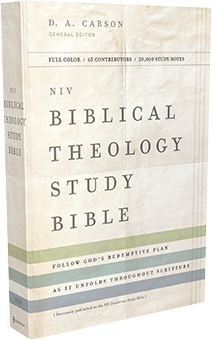
The Meaning of Shalom in the Bible
Jesus says, “Peace I leave with you; my peace I give you. I do not give to you as the world gives. Do not let your hearts be troubled and do not be afraid” (John 14:27). When Jesus meets his disciples after the resurrection, he continually says to them, “Peace” (John 20:19,21,26). Under these circumstances it is obvious that the term “peace” is extraordinarily full of meaning. What is this peace Jesus gives us? In order to understand Jesus’ words, we must reflect on the many facets of the crucial Hebrew term shalom, which lies behind the English word “peace.”
Shalom is one of the key words and images for salvation in the Bible. The Hebrew word refers most commonly to a person being uninjured and safe, whole and sound. In the New Testament, shalom is revealed as the reconciliation of all things to God through the work of Christ: “God was pleased . . . through [Christ] to reconcile to himself all things, whether things on earth or things in heaven, by making peace through [Christ’s] blood, shed on the cross” (Colossians 1:19–20). Shalom experienced is multidimensional, complete well-being — physical, psychological, social, and spiritual; it flows from all of one’s relationships being put right — with God, with(in) oneself, and with others.
Shalom with God
Most fundamentally, shalom means reconciliation with God. God can give us peace with himself or remove it (Psalm 85:8; Jeremiah 16:5). Because Phinehas turned away God’s wrath on sin, he and his family are given a “covenant of [shalom]” with God (Numbers 25:12). One of the offerings under the Mosaic covenant is the shelamim offering — the peace, or fellowship, offering — the only one of the Levitical sacrifices in which the offerer receives back some of the meal to eat. Sin disrupts shalom. When anything heals the rupture and closes the gap between us and God, there should be a celebration, a joyful meal in God’s presence.
Shalom with Others
Shalom also means peace with others, peace between parties. It means the end of hostilities and war (Deuteronomy 20:12; Judges 21:13). The wise woman of Abel Beth Maakah maintained her city’s shalom, its peacefulness, by averting a siege and war (2 Samuel 20:14–22). But shalom does not mean only reconciliation between warring factions or nations (1 Kings 5:12). It also refers to socially just relationships between individuals and classes. Jeremiah insists that unless there is an end to oppression, greed, and violence in social relationships, there can be no shalom, however much the false prophets say the word (Jeremiah 6:1–9,14; compare Jeremiah 8:11).
Shalom with(in) Oneself
Shalom consists of not only outward peacefulness — peace between parties — but also peace within. Those who trust in the Lord have inner security; therefore, they can sleep well (Psalm 4:8). God gives “perfect peace” (or shalom-shalom) — i.e., profound psychological and emotional peace – to those who steadfastly set their minds on him (Isaiah 26:3).The result of righteousness before God is “peace; its effect will be quietness and confidence forever” (Isaiah 32:17).
The Price of Shalom: Jesus
Shalom Prophesied
Shalom becomes an especially prominent theme in the prophetic literature. The prophets explain the invasions and exile the loss of shalom — as a curse on Israel for breaking the covenant and as punishment for their disobedience (Isaiah 48:18; Jeremiah 14:13–16; Micah 3:4-5, 9–12). But they also point into the future to a coming time of complete shalom, not only for Israel but also for the whole world (Isaiah 11:1–9; Isaiah 45:7). Only God can create shalom (Isaiah 45:7), and this gift will come through the work of the Messiah, the Prince of shalom (Isaiah 9:6–7). Therefore, shalom is perhaps the most basic characteristic of the future kingdom of God, a time when the Lord himself comes to heal all that is wrong with the world.
When the angels tell the shepherds about the birth of Christ, they call him the one who will at last bring peace on earth (Luke 2:14). Jesus is the Prince of shalom who will bring in God’s kingdom of peace that the prophets foretold (Romans 14:17; 1 Corinthians 14:33). The gospel of Jesus is “the gospel of peace” (Ephesians 6:15; compare Acts 10:36; Ephesians 2:17).
ShalomAccomplished
Jesus first of all reconciles us to God. He is the ultimate Phinehas who turns away the wrath of God and brings his family into a covenant of peace. But he does so by taking on himself the curse of sin so that all who are united to him by faith receive his blessing of peace (Galatians 3:10–13). “The wicked are like the tossing sea, which cannot rest . . . ‘There is no peace . . . for the wicked’ ” (Isaiah 57:20–21). But on the cross, God the Father treats Jesus as the wicked deserve to be treated (2 Corinthians 5:21). Jesus cries out as he loses his fellowship with the Father and experiences unimaginable inner agony (Matthew 27:46). He experiences infinite pain so that we can know endless peace (John 14:27).
Shalom Experienced
God is reconciling all things to himself through Christ (Colossians 1:20), and although he has not yet put everything right (Romans 8:19–23), those who believe the gospel enter into and experience this reconciliation.
This peace is first of all peace with God through justification by faith (Romans 5:1–2). There was a barrier between God and humanity, but Jesus paid the debt and now there is peace. This peace cannot increase or decrease. Though in ourselves we are actually “ungodly,” in Christ we are justified and accepted (Romans 4:5).
Jesus also brings us the peace of God — peace within. The peace of God garrisons our hearts against anxiety, difficulties, and sorrows (Philippians 4:4–7). It is possible to have a peace so deep that we can be content in any circumstance, even in times of great difficulty (Philippians 4:12–13). The peace of Christ is so closely related to joy (John 15:11; Romans 15:13) that we might say that joy is God’s peace and reconciliation lived out. The God of peace sanctifies us, growing us into Christlike character and maturity (1 Thessalonians 5:23; compare Galatians 5:22).
Finally, Jesus brings us peace with other human beings. Our peace with and from God gives us the resources to maintain unity and love with others through continual forgiveness and patience (Colossians 3:13–15). Christ is our peace, and by his death on the cross he removes even the high racial and cultural barriers that divide us (Ephesians 2:11–22).
Drawn from the article Shalom by Timothy Keller in the NIV Biblical Theology Bible.

NIV Biblical Theology Study Bible
Marvel at the big story and savor each detail. The NIV Biblical Theology Study Bible allows you to ponder the individual stories and themes of Scripture while observing how they all fit together in God’s grand biblical narrative. Includes 20,000 verse-by-verse notes and hundreds of study features. (Previously released as the NIV Zondervan Study Bible.)
Learn More






Thank you. I was watching The Chosen and they say this a lot and l had no idea what it meant. Thank you for the information.
Thank you for exploring the profound meaning of ‘Shalom’ in the Bible. Your insights beautifully highlight its deep significance in fostering peace and wholeness. Truly enlightening.
We thank God for revealing his truth. I now understand more about Shalom.